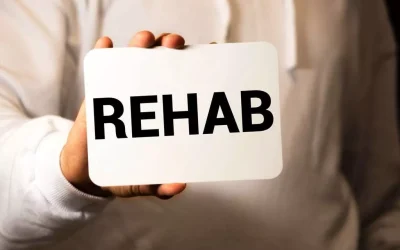Content
When she’s not writing, you’ll find her drinking coffee or running around her hometown of Boston. You know that a good sleep can help you feel your best in the a.m. But you might not realize that while a few glasses of wine could put you to sleep, vino certainly won’t help you get your deepest snooze on.
- As a general rule of thumb, the more alcohol you drink, the more likely you are to have a hangover the next day.
- The reason is, that coming down with an illness like the flu can often mimic hangover symptoms.
- It will give your body more time to digest the alcohol, reducing hangover symptoms.
- While not a disease we treat at the Johns Hopkins Headache Center, delayed alcohol-induced headaches are extremely common, disabling and costly to society.
Many Americans usually experience a hangover after a major event, party, family gathering, or holidays. However, if you find yourself having regular hangovers (almost every day), then this could be a sign that you are struggling with alcohol use disorder. In most cases, it’s probably because you’ve had a few too many drinks late into the night and still have alcohol in your system.
Just wondering…why are hangovers even a thing?
Hangovers begin when your previously raised blood alcohol level drops and nears zero. Shelley Shafer, DO, UnityPoint Health, offers her advice to help you get on your feet faster. Your blood-alcohol concentration (BAC) measures how much is in your blood. Hangover symptoms are at their worst when that level returns to zero and usually last about 24 hours. The fact that we feel worse after the alcohol has left our bodies has long been a mystery to researchers. Most of us can break down about one drink’s worth of alcohol each hour.
- You’ll receive 24-hour care and support from medical professionals.
- But drinking too much alcohol of any color can still make you feel bad the next morning.
- Ultimately, the only surefire remedy for a hangover is to avoid getting one by drinking in moderation or choosing not to drink.
- This type of delayed hangover could be a result of fluctuations in your hormonal system.
- Some people take over-the-counter pain relievers (often acetaminophen) before going to bed to minimize hangovers.
Whether or not you get a hangover really depends on a variety of factors, such as quantity of alcohol consumed, gender, ethnicity, level of dehydration, nutritional status, and medications. Have you ever https://ecosoberhouse.com/article/genetics-of-alcoholism-is-alcohol-abuse-hereditary/ over-indulged, drinking four or even more alcoholic beverages in a short period of time. And then got up the next morning with a headache, nausea, and generally feeling run down the next morning?
Certain Medications
The goal of endorphins is to improve your sense of well-being and reduce stress. Hangover symptoms peak when the blood alcohol concentration in the body returns to about zero. But they’re often not based in science, and some can be dangerous. For example, drinking more alcohol (“hair of the dog”) how long does a hangover last will not cure a hangover. More alcohol just increases the toxicity of the alcohol already in your body. If you’re concerned about your hangovers or potentially problematic or compulsive drinking behaviors, start by speaking with a physician, therapist, or other addiction treatment professional.
How do you get rid of a hangover faster?
- Hair of the dog.
- Drink fluids.
- Get some carbohydrates into your system.
- Avoid darker-colored alcoholic beverages.
- Take a pain reliever, but not Tylenol.
- Drink coffee or tea.
- B vitamins and zinc.
Plus, hangovers tend to be more severe after drinking on an empty stomach. There’s evidence that reduced sleep after drinking leads to more severe hangovers. Because individuals are so different, it is difficult to predict how many drinks will cause a hangover.
Existing health conditions
Or in other words, just under half a pint of beer or a small glass of wine. In this article, we’re going to take a closer look at why you may experience a delayed hangover and everything you can do to get rid of it. If you’re in the midst of a 2 day hangover, you’re probably trying to find out ways to get rid of it as soon as you can. If you’re feeling sick, nauseous, or vomiting into the second day of your hangover, it should prompt you to think of other causes which we will get into later. More importantly, we’ll also go over the steps you can take to prevent a 2 day hangover from happening in the first place.

Most people who get hangovers can diagnose themselves based on their alcohol consumption and symptoms. If you feel sick after consuming alcohol, you most likely have a hangover. If you have alcohol intolerance, you may have a genetic inability to process the acetaldehyde fast enough.
If you don’t eat anything and drink on an empty stomach, for example, you may feel worse because your bloodstream will take in the booze more quickly. And if alcohol use disorder runs in your family, you may have certain genes that affect the way you process liquor. Most people are well aware of the presence of headache, malaise, diarrhea, loss of appetite, tiredness, nausea and sensitivity to light, sound and motion the day after binge drinking. A hangover is a group of unpleasant symptoms that develop after drinking too much alcohol. Hangovers typically occur the morning after you drink alcohol, although symptoms can start to develop shortly after drinking.
For some people, the main delayed hangover symptom is a headache. The triggers for headaches vary greatly between individuals. Also, there are many different types of headaches such as tension, migraine, and cranial neuralgias to name a few. This type of delayed hangover could be a result of fluctuations in your hormonal system.

